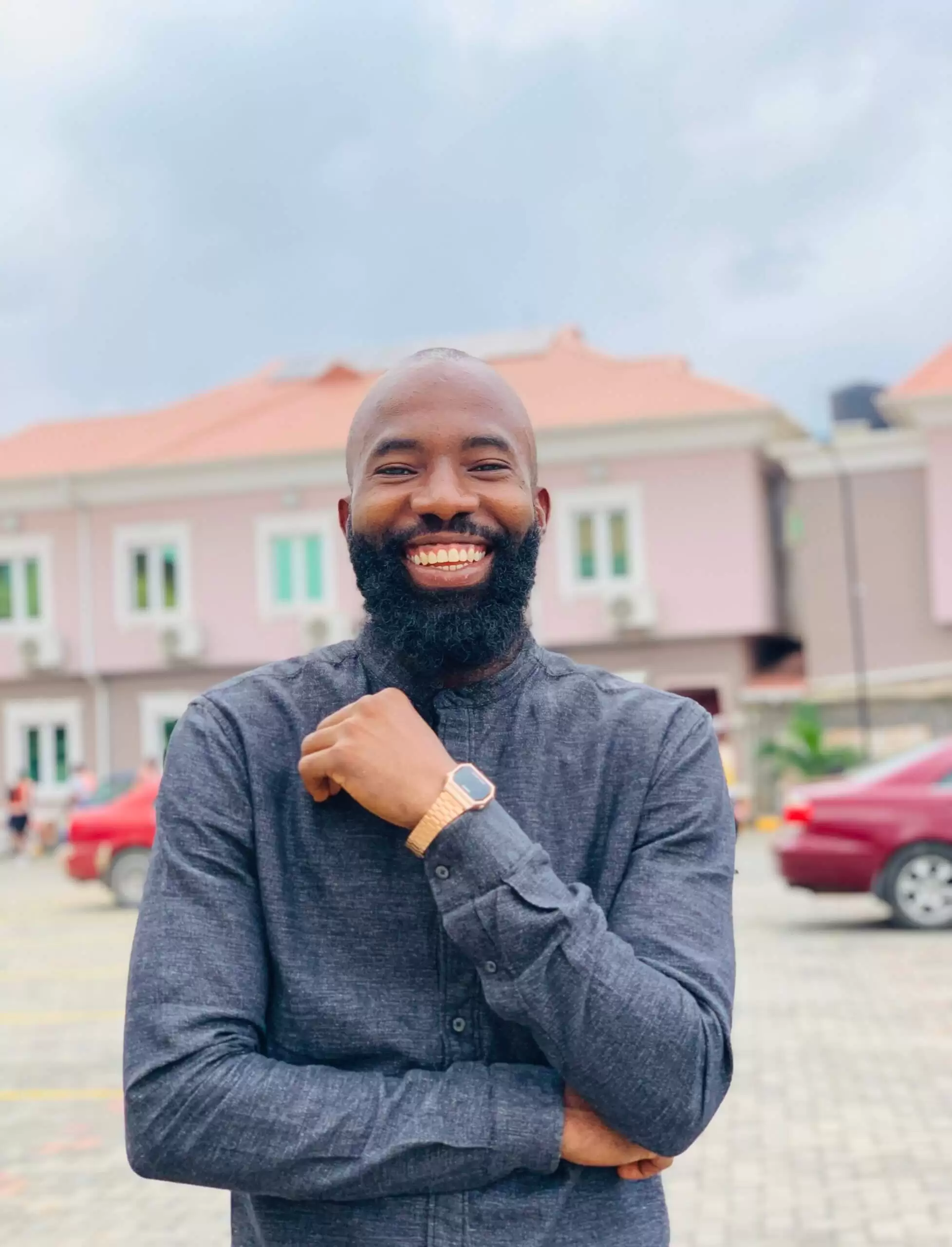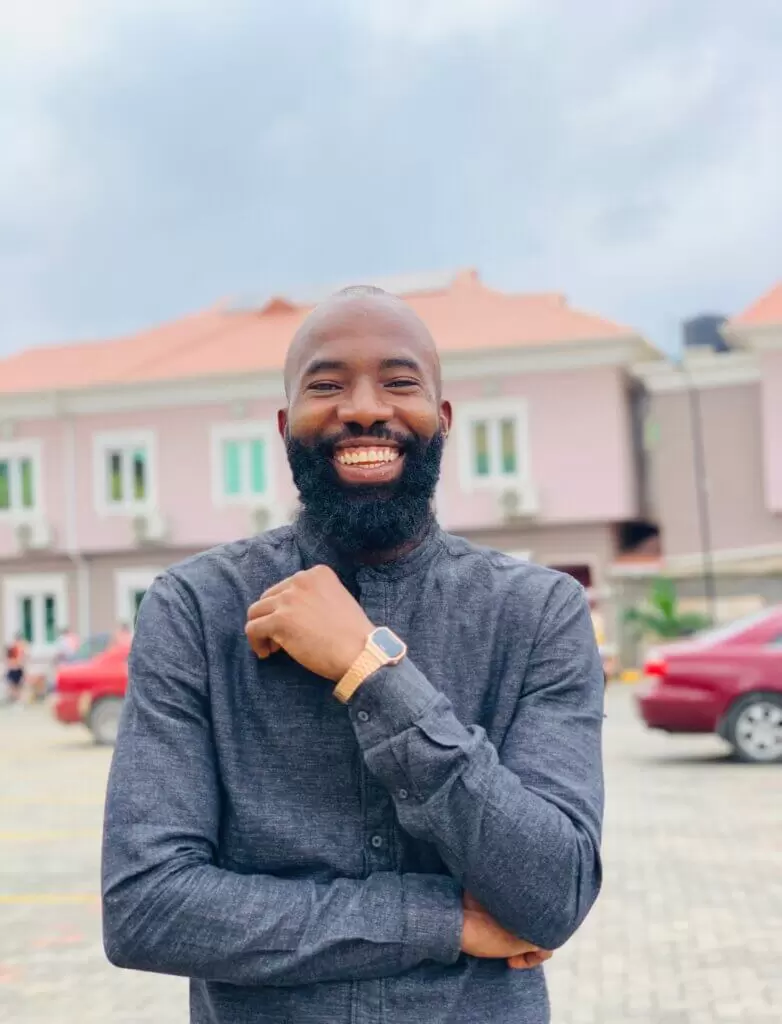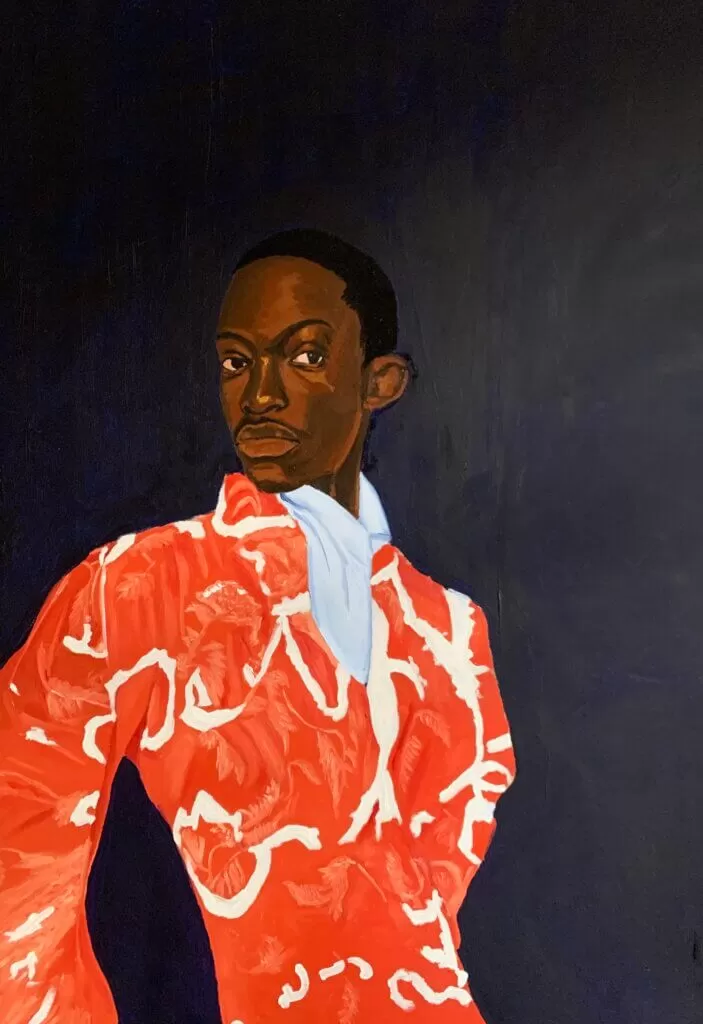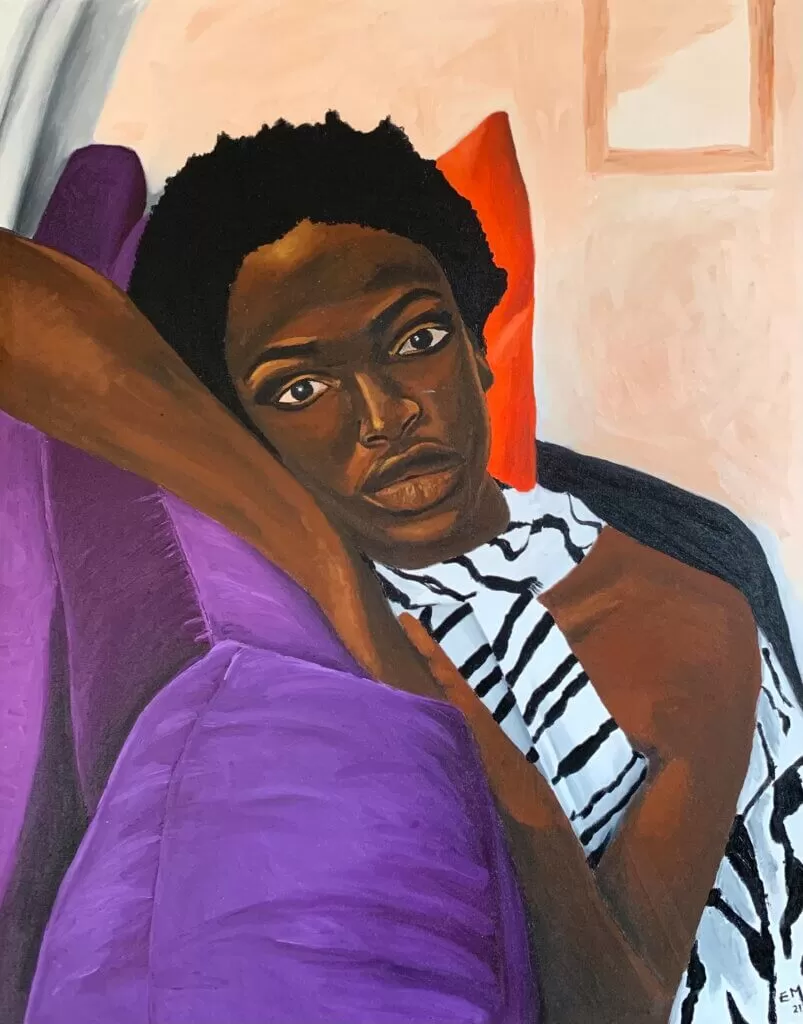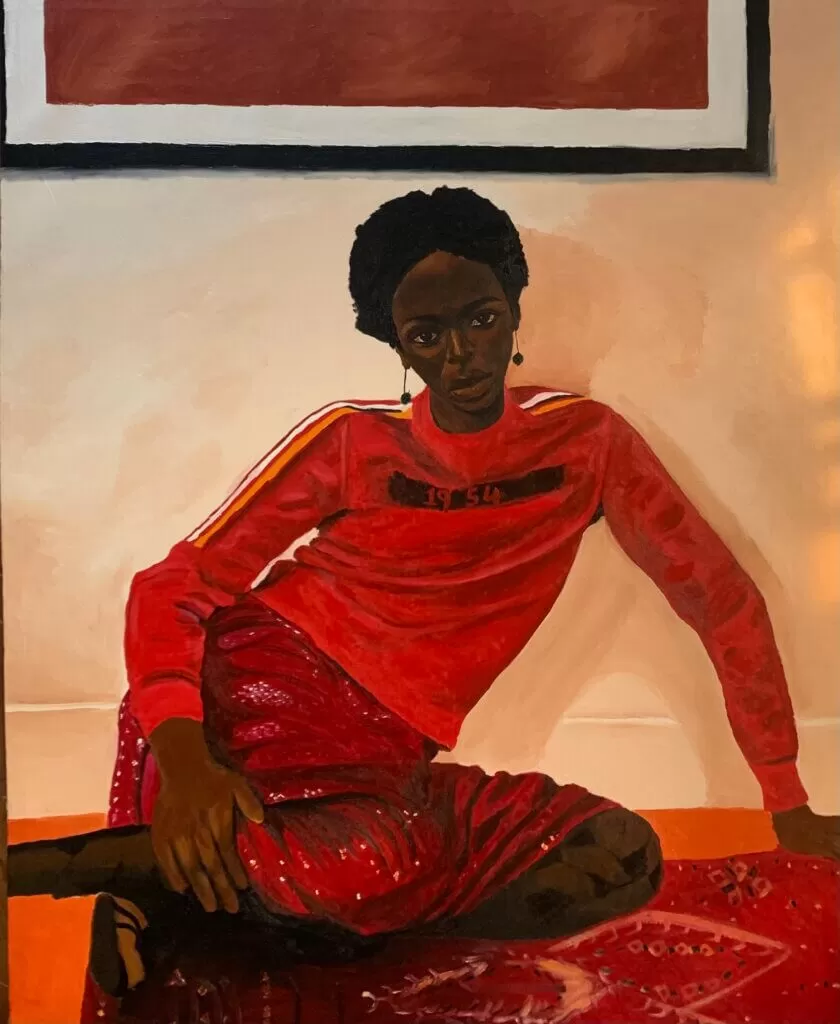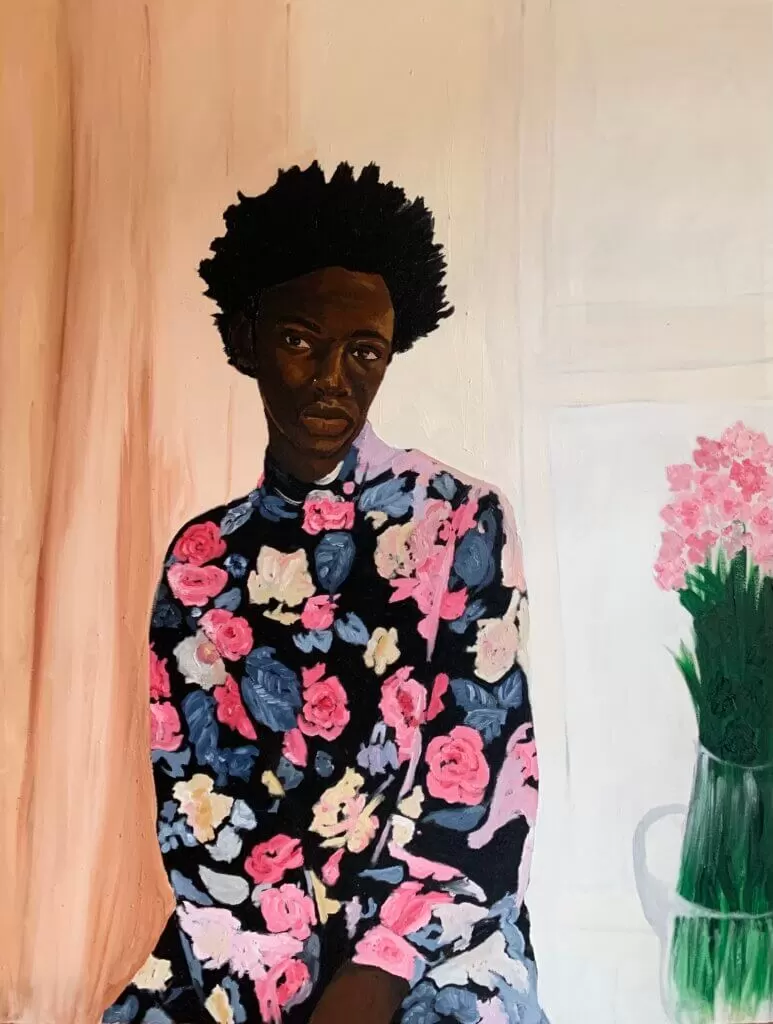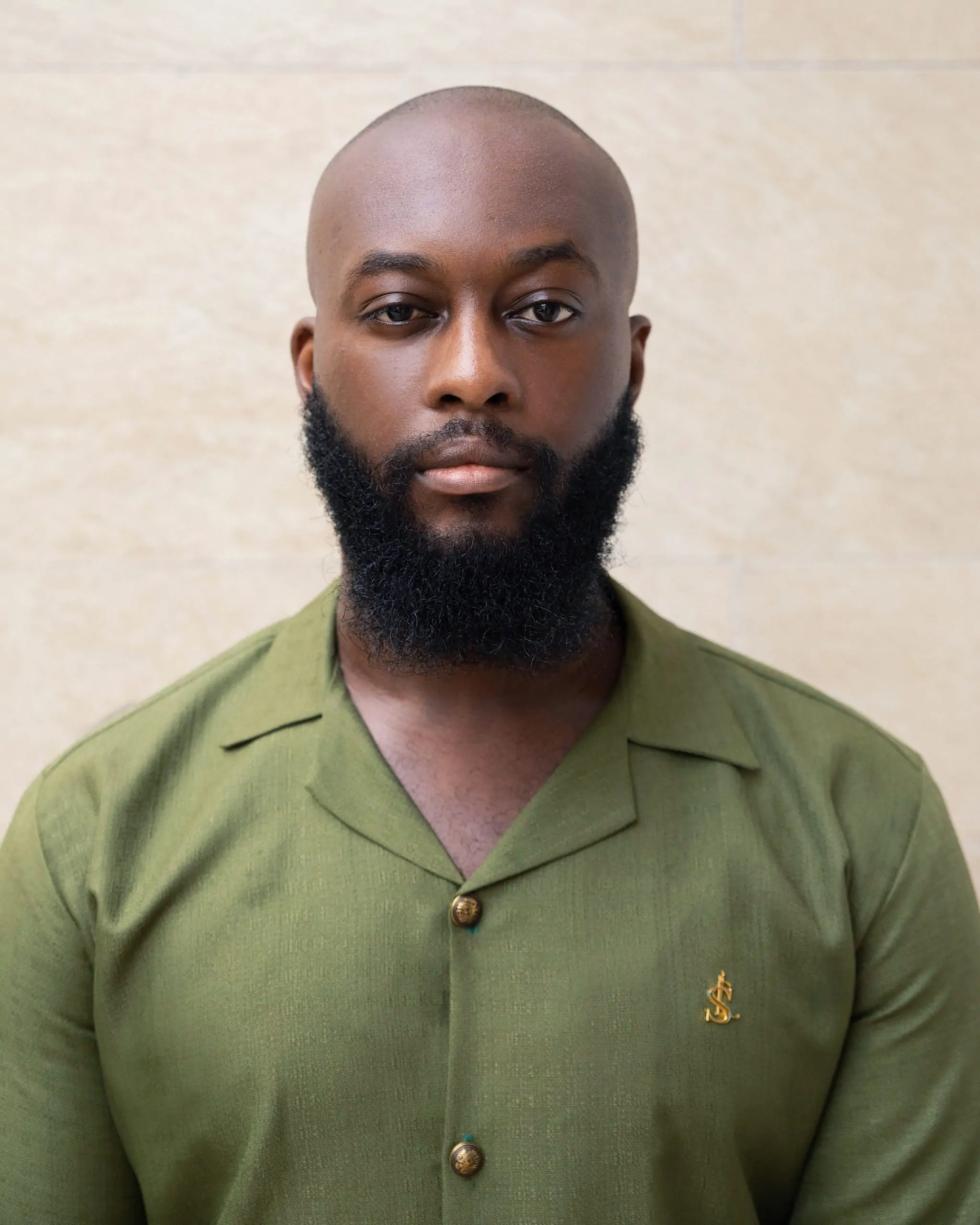Nigerian contemporary artist, Matthew Eguavoen, is somewhat of an artistic paradox. Whilst in recent months his work has become ubiquitous on social media; shared and reposted by budding art enthusiasts, and established and prominent curators and collectors alike, he remains somewhat of an enigmatic presence. Stumbling across his work felt both familiar yet pleasantly surprising and completely unexpected.
My works are centred around gender inequality, mental health, societal and political injustice, how it affects us as humans and how it ends up shaping our views on life
Matthew Eguavoen
His work drew me in and held me to ransom, and though captured in a portraiture style that has been adopted by most, if not all the rising contemporary art stars of today, his work still manages to cut through the noise, and shine brighter than all the hidden gems I have unearthed over the years, in the deep mine that is the contemporary african art market.
Raphael Dapaah: I’ll kick off this conversation first by congratulating you on the very recent birth of your son.
Q: How does fatherhood feel?
Matthew Eguavoen: Honestly, nothing I have experienced in the past prepared me for it. The waiting time outside the labour theatre was a long one. My mind was up; I couldn’t eat, I was pacing outside the labour theatre, praying my wife would have a safe delivery, and I am glad that my prayer was answered. There is the overwhelming joy of having a mini-me, and then there is the feeling of responsibility that comes with being a father. This is my first child, and it is going to be a whole learning process for me.
Raphael Dapaah: On to the art now. I came across your work by chance whilst browsing through Instagram, and I found myself in complete awe of your work. Your muses have a magnetic quality and hold your gaze.
Q: How long have you been painting for now, and at what point did you consider yourself a professional artist?
Matthew Eguavoen: I started painting in 2018. I had bought painting materials in 2017, but the fear that I might mess up a blank canvas held me back from painting for almost a year. But when I eventually found the courage, I never stopped.
I considered myself a professional artist this year, 2021. I say 2021 because, before 2021, I spent more time experimenting and working towards consistency in my works. I knew there are many rising artists, and I needed my works to stand out, so every day, I put in more and more work.
Raphael Dapaah: So, I know you are a Nigerian artist, which despite being a Ghana man myself, I find myself perpetually falling in love with work by Nigerian artists!
Q: For the benefit of our readers, can you expand a bit about your background. Where were you born and raised, and what was your upbringing like?
Matthew Eguavoen: I was born in Lagos State, Nigeria. Most parts of my childhood was in Ogun State, Nigeria. As a kid, we moved around a lot because my dad was a police officer (now retired), so he was transferred from state to state, meaning each time I would have to start making new friends in every state, we found ourselves, which was tiring.
I was good at making biological diagrams in secondary school, but I did not think of myself as an artist until my final year in the university.
Raphael Dapaah: It feels like art by black artists is all the rage across the significant art capitals. But it’s worth noting that Nigeria has a long and established contemporary art scene, with growing patronage from collectors based locally and internationally.
Q: What do you think has contributed to the health of the domestic market?
Matthew Eguavoen: Internationally? Yes. But personally, I can’t say that the patronage of collectors based locally has improved. 99 % of collectors that have collected my works are international collectors.
I think there is still a lot of sensitization that needs to be done here in Nigeria on the importance of art collection. In my own opinion, If I was to compare Nigeria to Ghana, Ghanian Artists are getting way more support than Nigerian Artists are getting locally.
Raphael Dapaah: I don’t know about you, but the pandemic really took a toll on me, and I didn’t realise just how much consuming art contributed to my happiness and wellbeing until we were forced to lockdown.
Q: How did the pandemic impact you personally, as well as your artistic practice?
Matthew Eguavoen: I spent the lockdown experimenting and creating works, I didn’t sell any works during the lockdown, but that didn’t deter me.
Raphael Dapaah: I was speaking to a collector friend based in Los Angeles recently, who is absolutely enchanted by your work, by the way, and we both described you as truly a hidden gem. Whilst figurative portraiture has gained in popularity in recent years, your work seems to really move, and mesmerise in a way that truly sets you apart from your contemporaries.
Q: What is next for you as an artist, and what can we expect in future, as far as a new series of work, or any group or solo exhibitions?
Matthew Eguavoen: I am working towards taking part in several group exhibitions this year when the opportunity presents itself. I am also looking forward to having my first solo exhibition either this year or next year; I’ve just not found the right gallery to work with yet for that.
Raphael Dapaah: One of the notions I find myself thinking about often as a writer and curator is legacy, and the contribution I want to make in this space, as an African telling the stories of Africans and black artists globally. Before we go, tell us what is your goal and purpose as an artist.
Q: What are you hoping to accomplish and achieve in this industry?
Matthew Eguavoen: Most of my works are centred around gender inequality, mental health, societal and political injustice, how it affects us as humans and how it ends up shaping our views on life in the long run. I hope that my works will strike up debates that would lead to solutions for challenges we face as human beings one day.
I want my works to go to collections that will shape the art industry in the future; I hope that my works will be sitting on museum walls around the world one day.
https://www.instagram.com/bartbouy/
©2021 Matthew Eguavoen


